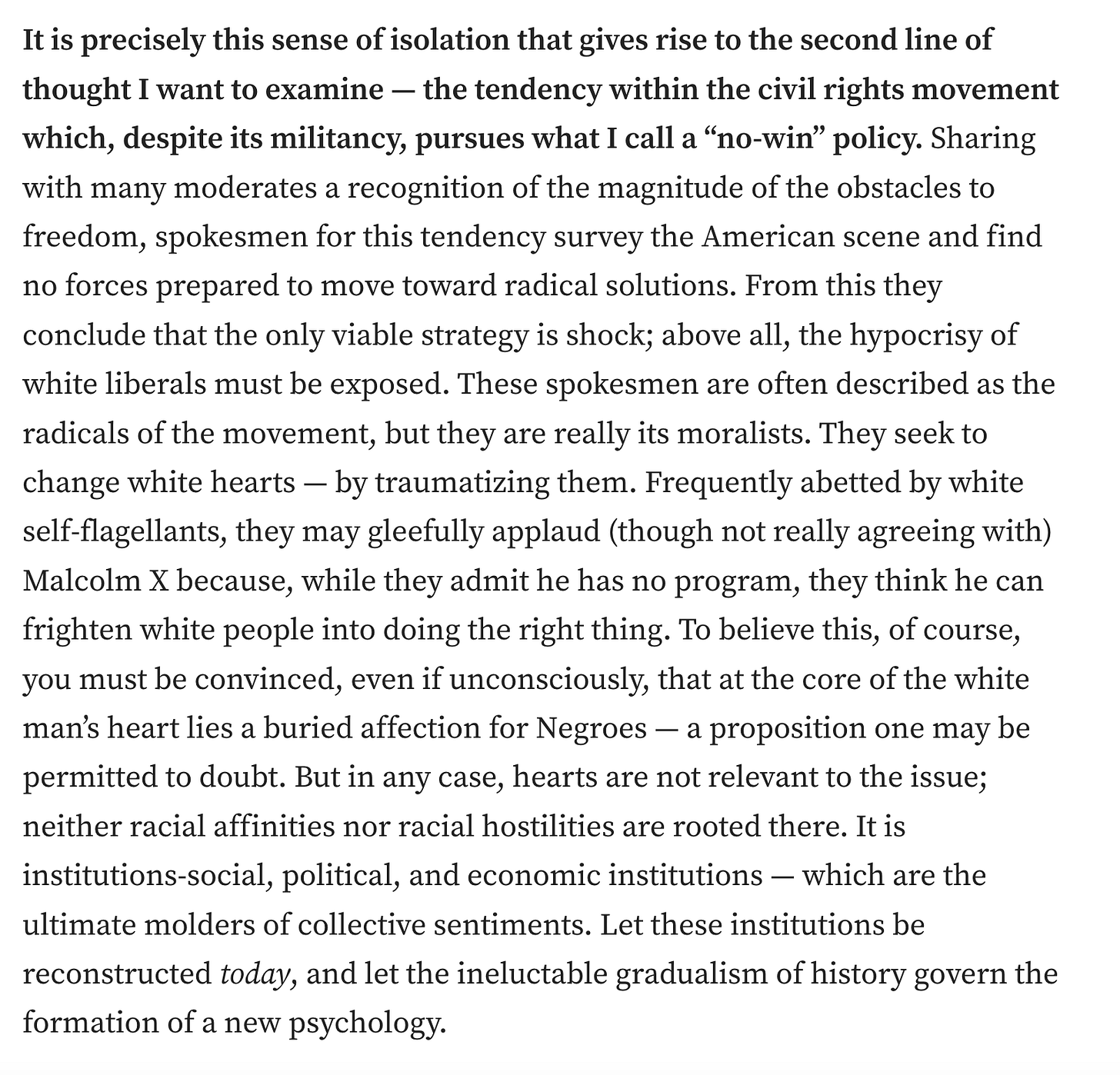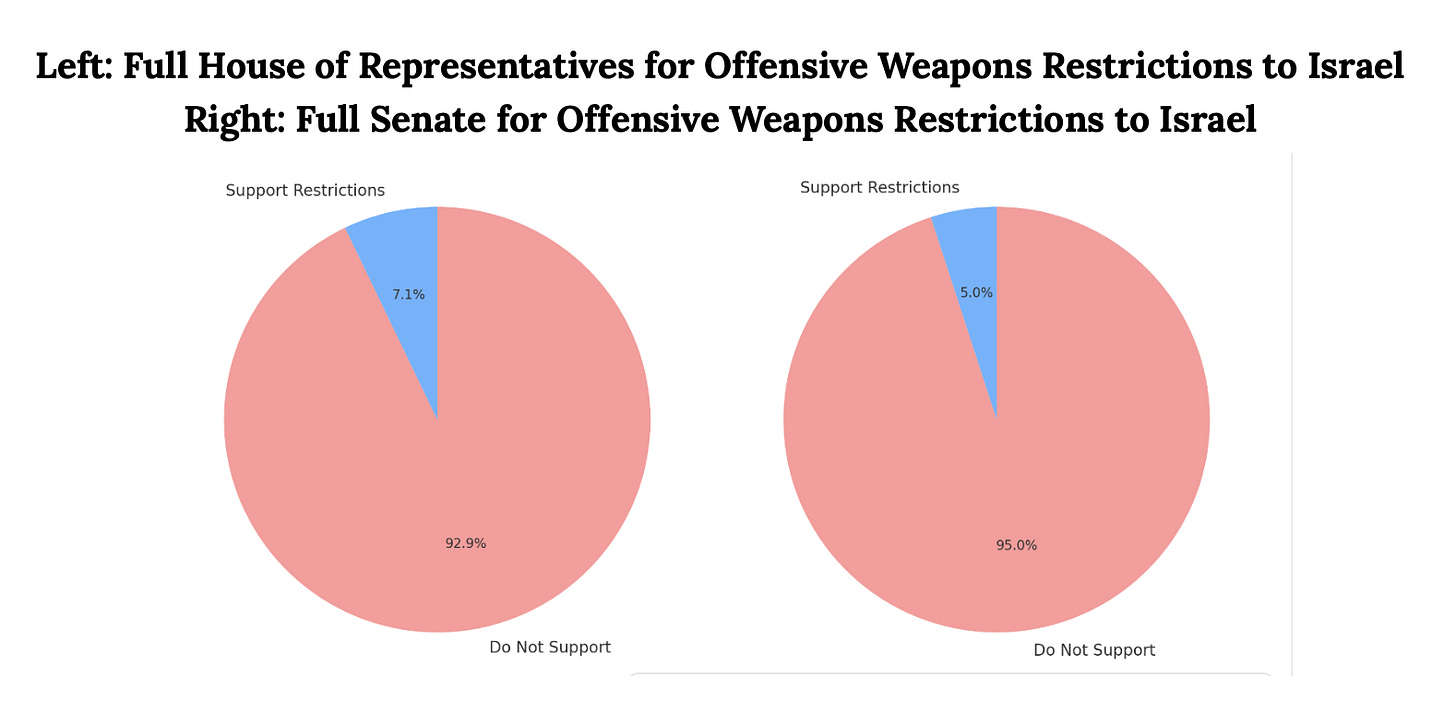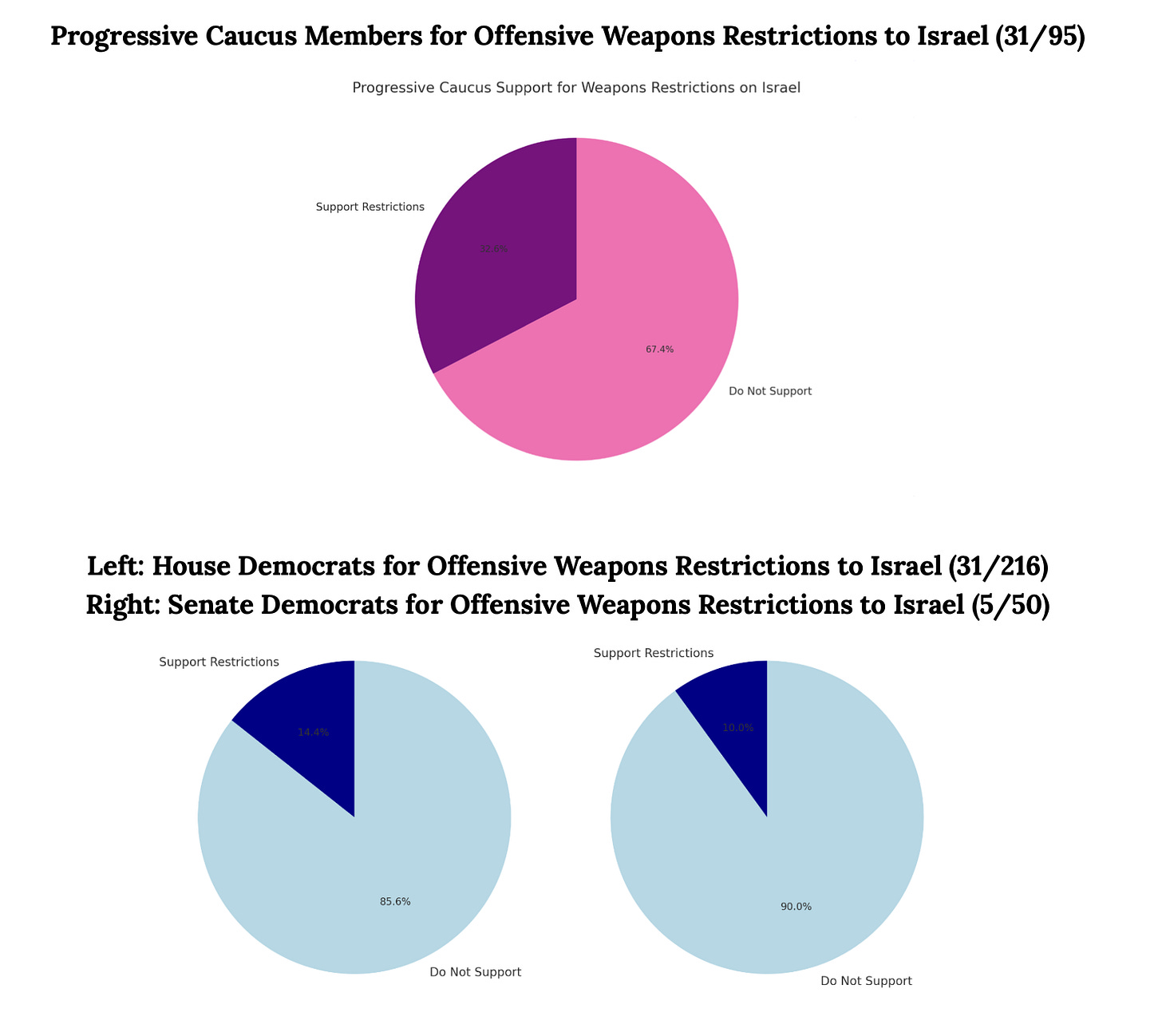Notes On The Election (and Beyond)
*deep breath*
Voting is not an act of faith. It’s not a ritual where you declare your purest values and clearest beliefs. It’s about finding the coalition that can carry your struggle forward. It’s about leveraging what you have to make the change you seek, even when the choices feel flawed.
The Democratic Party is far more than Biden and Harris. When we reduce it to just those two figures, we forget that it’s also a sprawling coalition of diverse, working-class voters. It’s legacy civil rights groups, labor unions, church grandmas, climate activists, reproductive rights organizers, and progressives who anchor the party. It’s this coalition that holds the potential to move the party away from AIPAC.
Seven major labor unions and the NAACP have come out against supplying weapons to Israel, and now they’re mobilizing to defeat Trump. They have the power to make it count. We must build the power in Washington so that their words turn into real priorities for an accountable Harris administration, planting stakes that can’t be ignored.
Sometimes, our algorithms can make us forget that there are many, many millions more working-class people and young voters who support both Harris AND ending America’s unconditional support for Israel than those who support the policy change but aren’t voting for her.
I’m voting for Harris/Walz to keep Trump out. Netanyahu, Elon Musk, and Miriam Adelson are eager for Trump’s return, convinced he’ll give them more power than Harris. I believe they’re right.
I’ll be honest: Biden and Harris have left our communities with a painful, heavy burden. How do you vote for those who’ve supplied the weapons for some of the worst atrocities in recent memory? Many of my friends and family aren't voting for Harris because of her backing of weapons to Israel and I think it could cost her the election. And still, I feel this election isn’t about Harris. It’s about us.
Organizing doesn’t offer shortcuts. We have to ask ourselves why Rep. Nikema Williams in GA or Sen. Padilla in CA won’t support an arms embargo. Third-party dreams leapfrog past this question, assuming Democrats can be “punished” into policy change if Trump wins. But power doesn’t work that way.
After the March on Washington, Bayard Rustin shifted his focus from protest to politics. He understood that Washington bends to power:
To face off against AIPAC’s influence, we need real power—power that is built through organizing, not through wishful thinking about “general strikes” in the first 100 days.
Social media may democratize “strategists,” but let’s be honest and serious with people who may not know better. Only a few unions can conduct an impactful nationwide strike. Count me skeptical that members of SEIU, AFT, AFSCME, and AFL-CIO will go on strike for Palestine in Harris’s first 100 days. That would take much more political power than we have.
The horrific reality is that the anti-war movement hasn’t built enough power to challenge AIPAC’s influence in Washington. Leaders like Harris see more risk than reward, risking coalition fractures. Most Senate Dems oppose an arms embargo, and Bowman and Bush paid the price.
But that doesn’t mean all hope is lost. Movements and Democratic voters have shifted the party away from segregationists, anti-choice forces, Big Oil, backers of apartheid South Africa. How? By building inside/outside infrastructure, forcing the key stakeholders in the party fight back against hate, division, and oppression.
I hear the pain of my Palestinian and Lebanese brothers and sisters who can’t support a party funding bombs that devastate their families. I feel the grief of endless WhatsApp updates from home, the justifiable rage that follows. I don’t blame any directly impacted person who can’t bring themselves to vote for Harris.
For others looking to third parties or Trump, what comes after that one singular choice on Election Day matters much, much more. What we do outside the ballot box is crucial. Walking away is what AIPAC wants and risks leaving the legislative, executive, and judicial branches of government to those who’d do much, much worse.
I want a progressive foreign policy, climate justice, an expansion of reproductive and civil rights, and more dignity for working class people. It feels distant now, but those goals are closer with Harris than with Trump. Not because of Harris, but because I believe in us and our ability to build real political power. It’s a hard, imperfect choice, but I’m making it with my eyes wide open, knowing what’s at stake.
It’s painful to see so many in our community—men and elders—normalize Trumpism, prey to those profiting off our despair, a sign of our party’s failure to see our humanity. They abandon Democratic professed ideals for a colder philosophy of self-preservation and punishment. Every man for himself. I hope we can one day recover.




